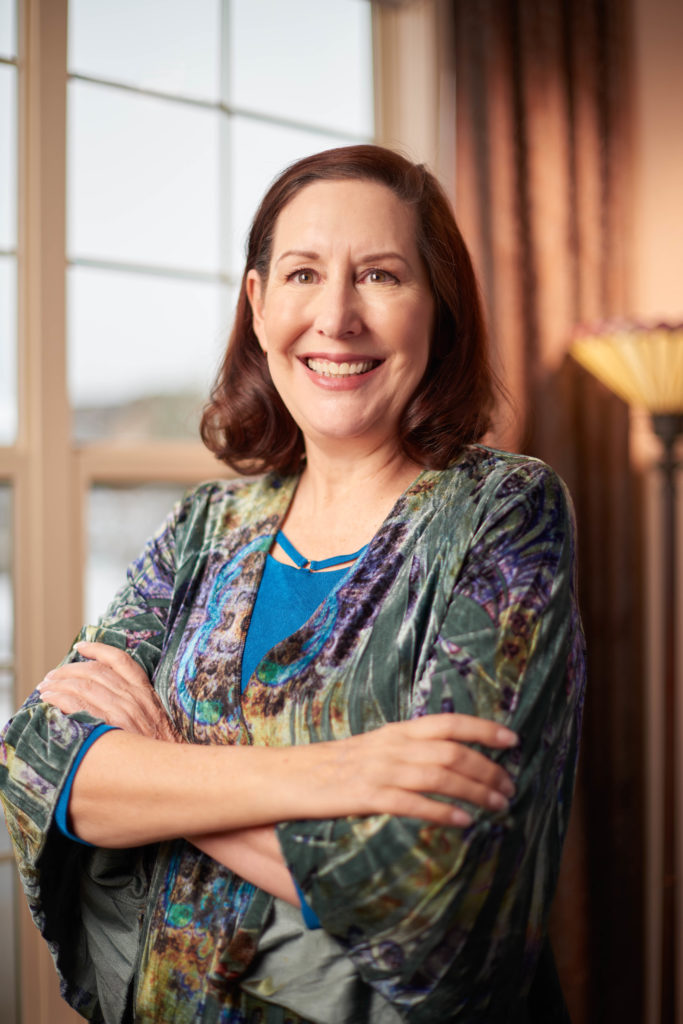
I live with Bipolar I Disorder. In 2007, while going through a difficult divorce and custody battle at age 45, I became manic and was hospitalized for the first time. It would take me five years to become stable, secure proper medication and accept my diagnosis.
In 2012, I lived with psychosis for 9 months. I experienced 3 more traumatizing involuntary hospitalizations. Finally, a voluntary hospitalization in a different facility helped me to stabilize. At this time, I fully made peace with my diagnosis and began to actively work on my recovery.
In the early years of my recovery, I was very resistant to leave my home to interact with others who were not in my family. I would leave the house only to support my son in his school activities. Every time I left the house, I was fearful of running into people who witnessed my psychosis. My psychosis experiences were extremely public and the shame was crippling. I worked hard in therapy to release my shame. I worked with my therapist on the goal of leaving my house to go to safe spaces. That’s when I started attending DBSA support groups.
My first memory of attending the DBSA support group in Colorado Springs was this wonderful, vibrant facilitator named Riss, who also lived with bipolar disorder. This was my first introduction to person-first language. I remember immediately feeling less stigmatized and alone. Here was this confident young woman who shared my diagnosis. I wanted to become more like her.
Attendances at these meetings helped me to release my shame and combat stigma. DBSA has taught me that I am a person first and not my illness. This support provides me with a constant source of hope and inspiration.
After attending for several months, Riss asked me to train to become a support group facilitator. I was so honored.
Before bipolar disorder burned my life to the ground, I had an extremely successful career. I have won many awards for my teaching and directing. My theater productions would be seen by thousands of people to great acclaim. I loved my career and mourned its loss.
One night, I was facilitating a group and it became crystal clear to me that this work of peer support was just as valuable and meaningful as directing a show for thousands to see. I had found something I loved as much as directing theater. This realization was miraculous for me.
I have served on the Board of Directors for DBSA Colorado Springs for two years now and was recently honored to accept the role of chapter president. Additionally, I am a virtual facilitator trainer for DBSA National. I love the opportunity to use my teaching background for a cause I am passionate about.
It was at a DBSA board meeting that I first learned about career opportunities in being a peer support specialist. I was amazed that my lived experience qualified me for meaningful employment. I have since completed the training to become a certified peer support professional and just recently became employed to train peer support professional candidates with the Colorado Mental Wellness Network. My experiences with DBSA made this employment possible. I am beyond thrilled.
My involvement with DBSA gave me back my sense of purpose and meaning. Almost immediately, I realized what a privilege it is to walk alongside others as they seek wellness.
Shame can only survive in dark, quiet places. Stopping stigma is critical if we are to be a truly integrated society. My experience as a peer facilitator has shown me that it is my willingness to be vulnerable and authentically share my story that allows me to be helpful to others.
Today, when I run into people who last saw me when I was gravely ill, I say, “I am much better now,” and ask about their lives. Recovery is possible!


